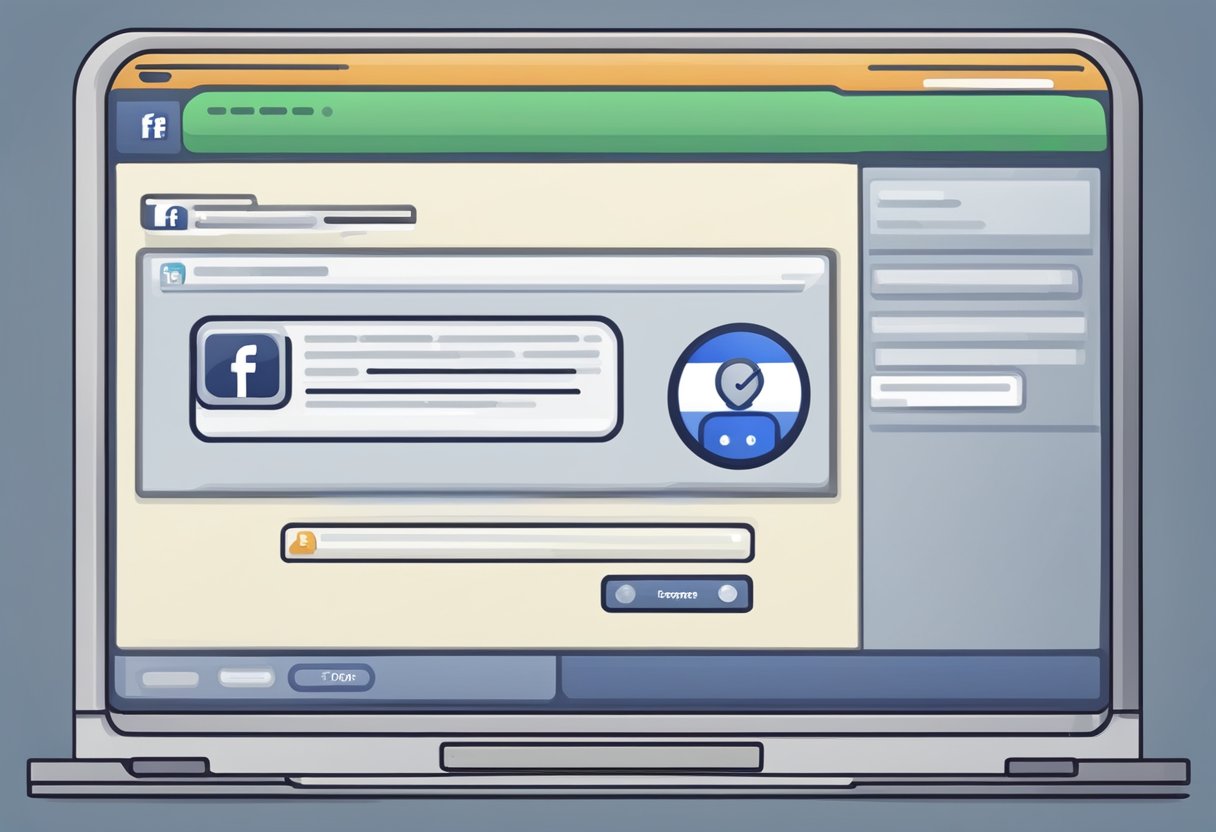If you’re an avid Facebook user, you may have noticed the option to send encrypted messages. Encrypted messages are a security feature that allows you to send private messages that can only be read by the intended recipient.
This means that even if someone intercepts the message, they won’t be able to read it.
To use encrypted messages on Facebook, you’ll need to turn on the Secret Conversations feature. This feature uses end-to-end encryption, which means that the message is encrypted on your device, sent to the recipient’s device in an encrypted form, and then decrypted on their device.
Encrypted messages can be used for a variety of purposes, such as discussing sensitive information like personal details, financial information, or anything else you wouldn’t want others to see.
It’s important to note that while encrypted messages provide an extra layer of security, they’re not foolproof.
It’s still important to be cautious about what you share online and who you share it with.
Understanding Encrypted Messaging
Definition of Encryption
Encrypted messaging is a secure way of sending messages where the content of the message is scrambled using a secret code, making it unreadable to anyone except the intended recipient.
The message is encrypted on the sender’s device and decrypted on the recipient’s device, ensuring that no one else can read the message in transit.
Encryption is a complex process that involves using algorithms to transform the message into an unreadable format. The key to decrypting the message is only known to the sender and the recipient, making it impossible for anyone else to read the message.
Benefits of Encrypted Messaging
Encrypted messaging provides several benefits, including:
- Security: Encrypted messaging ensures that your messages are secure and private. No one, including hackers, governments, or even Facebook, can read your messages.
- Privacy: Encrypted messaging ensures that your messages are only visible to the intended recipient. This means that your messages cannot be intercepted or read by anyone else.
- Authenticity: Encrypted messaging ensures that the message is authentic and has not been tampered with. The recipient can be sure that the message they receive is the same message that was sent by the sender.
- Confidentiality: Encrypted messaging ensures that your messages are confidential. This is particularly important for sensitive information, such as financial information or personal details.
Also See: Is LinkedIn InMail Free?
Facebook’s Approach to Encryption
History of Encryption on Facebook
Facebook has been implementing encryption for several years now, with the primary goal of ensuring user privacy and security.
In 2011, Facebook introduced HTTPS encryption for all its users, which helped protect data transmission between users and the Facebook servers.
In 2015, Facebook introduced end-to-end encryption for its Messenger app, which allowed users to have private conversations without the risk of interception from hackers or government agencies.
Facebook has continued to improve its encryption technology to ensure that users have complete control over their conversations and data.
Types of Encryption Used
Facebook uses various types of encryption to protect user data, including Transport Layer Security (TLS), Perfect Forward Secrecy (PFS), and Signal Protocol.
TLS is used to secure data transmission between users and Facebook servers, while PFS ensures that if a key is compromised, the attacker cannot access past conversations.
Signal Protocol is used for end-to-end encryption in Messenger, which ensures that only the sender and receiver of a message can read its contents.
This encryption technology has been praised by security experts for its effectiveness in protecting user privacy.
How Encrypted Messaging Works on Facebook
The Encryption Process
Facebook’s encrypted messaging service uses the Signal Protocol, which is an open-source encryption protocol. This means that the encryption process is transparent and can be reviewed by security experts to ensure its effectiveness.
When you send a message on Facebook, it is first encrypted on your device using a unique key. This key is then sent to the recipient along with the encrypted message.
The recipient’s device then uses the key to decrypt the message.
The encryption process ensures that only the intended recipient can read the message, as the message is unreadable without the key.
This means that even if someone intercepts the message, they will not be able to read it.
Sending and Receiving Encrypted Messages
To send an encrypted message on Facebook, you need to have an active internet connection and the latest version of the Facebook app.
Once you have these, you can start a new conversation with the person you want to message and enable the “Secret Conversation” feature.
When you enable Secret Conversation, all messages sent between you and the recipient are encrypted end-to-end.
This means that no one, including Facebook, can read the messages.
To receive an encrypted message on Facebook, the recipient also needs to have the latest version of the app and an active internet connection.
Once they receive the message, they can decrypt it using the unique key sent along with the message.
Also See: What Is Whitelisting In Influencer Marketing?
User Experience
Accessing Encrypted Messages
However, you will notice a lock icon next to the sender’s name, indicating that the message is encrypted.
To access the message, simply click on it and enter your password or use your biometric authentication if enabled.
Once you have accessed the encrypted message, you will be able to read it just like any other message. However, you will not be able to forward or screenshot the message, as these actions are restricted for security reasons.
Managing Privacy Settings
To ensure your privacy and security, Facebook offers various privacy settings that allow you to control who can send you encrypted messages and who can see your encrypted messages.
You can access these settings by going to the “Privacy” section in your Facebook settings.
In the privacy settings, you can choose to allow or disallow encrypted messages from certain people or groups. You can also choose to hide your encrypted messages from certain people or groups.
Security Considerations
Potential Vulnerabilities
While encrypted messaging on Facebook provides an added layer of security, it is important to note that it is not foolproof. There are still potential vulnerabilities to be aware of.
One such vulnerability is the possibility of a hacker gaining access to your device and intercepting your messages before they are encrypted. This can happen if your device is not properly secured with a strong password or if you unknowingly download malware onto your device.
Another vulnerability is the possibility of someone gaining access to your Facebook account and viewing your encrypted messages. This can happen if you use a weak password or if you fall victim to a phishing scam.
Best Practices for Secure Messaging
To minimize the risk of potential vulnerabilities, it is important to follow best practices for secure messaging.
First, make sure your device is properly secured with a strong password and up-to-date antivirus software. This will help prevent hackers from gaining access to your device and intercepting your messages.
Second, use a strong and unique password for your Facebook account. This will help prevent unauthorized access to your account and your encrypted messages.
Third, be wary of phishing scams and never click on suspicious links or download attachments from unknown sources.
These can be used to gain access to your Facebook account and view your encrypted messages.
Finally, consider using two-factor authentication for your Facebook account.
This will require a code in addition to your password to log in, making it more difficult for someone to gain unauthorized access to your account and your encrypted messages.
Also See: Advantages of D2C Marketing: Directly Reaching Your Target Audience
The Future of Encryption on Facebook
Advancements in Encryption Technology
As technology advances, encryption methods are becoming more sophisticated and secure.
One of the latest advancements in encryption technology is end-to-end encryption, which is a method of encrypting messages so that only the sender and recipient can read them.
Facebook has already implemented end-to-end encryption in its Messenger app, and it plans to roll out this feature to its other messaging services, such as Instagram and WhatsApp.
Facebook’s Encryption Roadmap
Facebook has a long-term plan to make all its messaging services end-to-end encrypted. The company has stated that it wants to make privacy a top priority for its users. End-to-end encryption is a key part of this strategy.
However, implementing end-to-end encryption is not without its challenges. For example, it can make it harder for Facebook to detect and remove harmful content, such as hate speech and terrorist propaganda.
Facebook is working on solutions to these challenges. For instance, they are using artificial intelligence to detect harmful content while still maintaining user privacy.
In the future, we can expect to see Facebook continue to invest in encryption technology to ensure that its users’ messages and data remain private and secure. As more people become concerned about their online privacy, encryption will become increasingly important. Facebook is well-positioned to lead the way in this area.



 Get Sala Now
Get Sala Now